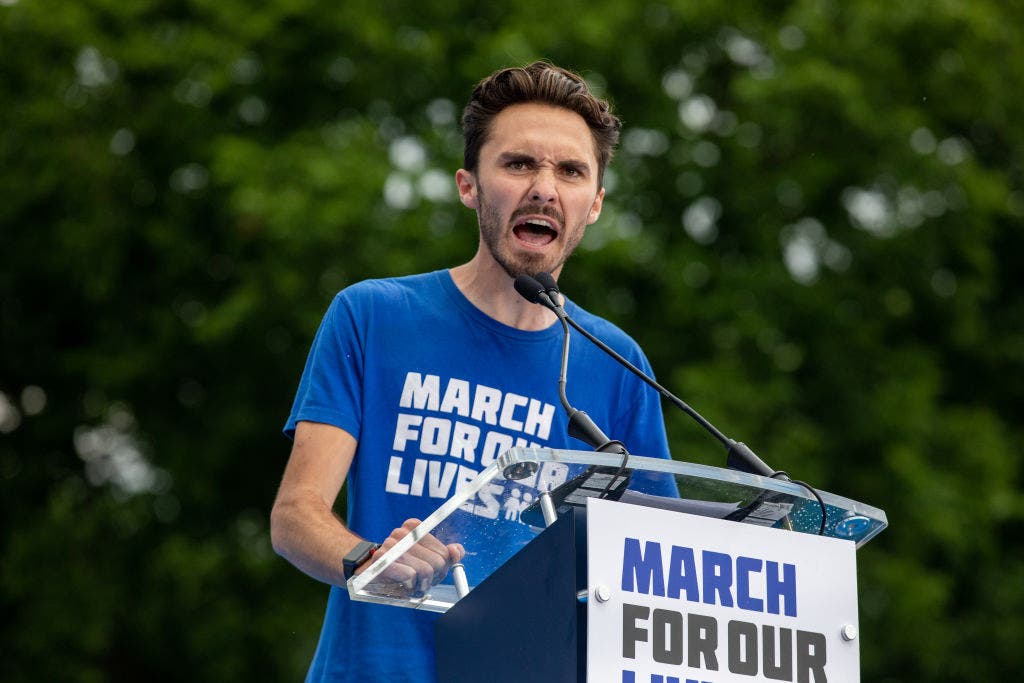David Hogg, a survivor of the 2018 Parkland school shooting and prominent gun control advocate, has ascended to the position of Vice Chair of the Democratic National Committee (DNC), a move that has sparked both celebration and controversy. Hogg’s election comes at a critical juncture for the Democratic Party, which is grappling with the aftermath of a disappointing performance in the 2024 elections and engaging in introspection regarding its platform and messaging. Hogg’s past pronouncements on issues such as policing, immigration, and gun control, coupled with his youthful age and active social media presence, have placed him at the center of a broader debate about the future direction of the Democratic Party.
Hogg’s political activism gained momentum following the tragic Parkland shooting, with his advocacy for stricter gun laws propelling him into the national spotlight. His online pronouncements have, at times, proven controversial, including calls to abolish Immigration and Customs Enforcement (ICE), defund the police, and designate the National Rifle Association (NRA) as a terrorist organization. He has also weighed in on climate change, expressing the urgency of preventative measures, and even ventured into predicting election outcomes, albeit inaccurately. These past pronouncements are now under scrutiny as Hogg takes on a leadership role within the DNC.
Hogg’s election to the DNC Vice Chairmanship has been met with a mixed reception. While his supporters applaud his passion and commitment to progressive causes, his critics express concerns about his past statements and their potential impact on the party’s broader appeal. The Democratic Party is currently navigating a period of self-reflection, analyzing its performance in the 2024 elections and seeking to understand the factors that contributed to its losses. Some analysts attribute the party’s setbacks to perceived weaknesses on issues like crime and illegal immigration, areas where Hogg’s past pronouncements may clash with more moderate elements within the party.
Hogg’s vision for the Democratic Party involves a significant shift in strategy and approach. He advocates for a more assertive stance, urging the party to “go on offense” and actively challenge Republican policies. He also emphasizes the need to rebuild trust with various demographic groups, including the working class and young people, whom he believes the party has lost touch with. Hogg’s call for a more “authentic and relatable” Democratic Party resonates with those seeking a renewed focus on connecting with voters on a personal level. He believes that abandoning judgmental attitudes and embracing a more inclusive approach are essential for the party’s future success.
The juxtaposition of Hogg’s past statements and his current leadership role within the DNC raises questions about the party’s direction and its ability to bridge internal divisions. His pronouncements on defunding the police and abolishing ICE, for instance, could alienate more moderate voters while energizing the progressive base. Similarly, his strong stance on gun control, while resonating with many, may prove challenging in attracting voters in more conservative areas. The challenge for Hogg and the Democratic Party will be to find common ground and present a unified front while addressing the diverse concerns of its constituents.
Hogg’s election represents a significant development within the Democratic Party. His youthful energy, passionate advocacy, and outspoken nature inject a new dynamic into the party’s leadership. However, his past statements and policy positions also present challenges for a party seeking to broaden its appeal and regain lost ground. The coming months and years will reveal how Hogg navigates his new role and how his influence shapes the future direction of the Democratic Party. The party’s ability to reconcile its diverse viewpoints and present a cohesive message will ultimately determine its success in future elections.

